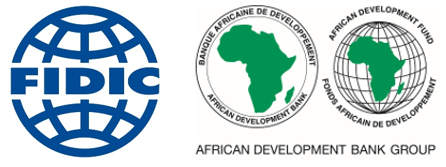
FIDIC contracts become the contractual backbone for large infrastructure projects financed by the African Development Bank

Abidjan — The International Federation of Consulting Engineers (FIDIC) has secured a major agreement with the African Development Bank for the use of seven FIDIC standard contracts for the next five years.
FIDIC is the global representative body for national associations of consulting engineers and represents over one million engineering professionals and 40,000 firms in more than 100 countries worldwide. Internationally, FIDIC contracts are the foundation for large infrastructure projects. These contracts are widely used by project engineers in Namibia.
FIDIC has granted the bank a non-exclusive licence to refer to the seven major FIDIC contracts for projects they finance and the documents may be used as part of the bank’s standard bidding documents. The contracts include the latest 2017 Second Edition FIDIC contracts and 1999 editions, which cover a wide range of international construction and infrastructure work.
The move by the African Development Bank is another significant endorsement for FIDIC contracts from a multilateral development bank, following similar agreements signed with the World Bank, Inter-American Development Bank, Caribbean Development Bank, the European Bank for Reconstruction and Development and the Asian Infrastructure Investment Bank in recent months.
FIDIC chief executive Dr. Nelson Ogunshakin said: “We are delighted to have signed this agreement with the African Development Bank, an organisation doing fantastic work fighting poverty and improving living conditions for people in Africa. The signing of this agreement means that FIDIC has now entered into similar licensing agreements with almost all of the major global funding organisations. By adopting the FIDIC contracts on major projects, the AfDB is demonstrating that they endorse the fair and balanced approach that these documents offer to parties on major construction contracts and we believe that this will create more certainty in the market as banks, lenders, investors and clients adopt them.
“The bank’s endorsement should also provide additional comfort to financial, institutional and private equity investors operating in the global market to adopt the use of FIDIC standard procurement contracts as an effective tool to mitigate the risks associated with investable infrastructure asset class.”
Commenting on the agreement, Mr. Frank Mvula the bank’s Director of Fiduciary Services & Inspection, said: “We are glad to have concluded an agreement with FIDIC that would enable us to incorporate FIDIC contracts in some of our standard bidding documents. There is no doubt that the use of FIDIC contracts is a step to enhancing equity and fairness as well as efficient and effective contract management as emphasized under the bank’s new Procurement Framework.”
The seven FIDIC contract documents covered by the FIDIC / African Development Bank agreement comprise the following:
1.) Conditions of Contract for Construction for Building and Engineering Works Designed by the Employer (“Red book”), Second edition 2017;
2.) Conditions of Contract for Plant & Design-Build for Electrical & Mechanical Plant & for Building & Engineering Works Designed by the Contractor (“Yellow book”), Second edition 2017;
3.) Conditions of Contract for EPC Turnkey Projects (Silver book), Second Edition, 2017);
4.) Client/Consultant Model Services Agreement (“White book”), Fifth Edition 2017;
5.) Conditions of Contract for Design, Build and Operate Projects (“Gold book”) First Edition 2008;
6.) The Short Form of Contract (“Green book”), First Edition 1999;
7.) Conditions of Contract for Construction for Building and Engineering Works Designed by the Employer (“Red book”), First edition 1999.
Distributed by APO Group on behalf of African Development Bank Group











































